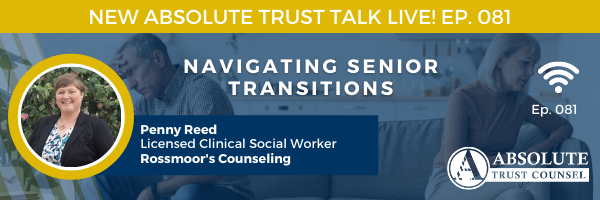Walnut Creek Estate Planning Attorney, Kirsten Howe, Comments How Bill Paxton’s Death Reminds Us To Plan Ahead
Hollywood takes another hit as we see iconic silver screen legend, Bill Paxton, pass away due to heart surgery complications on February 25th. As difficult as it is to have conversations about how and where you want to spend your final days or who inherits your belongings after you die, the sudden passing of Bill is another example that no time is too soon to plan out your final wishes.
“Losing someone to surgery complications is certainly not uncommon, and any physician will tell you that going in for a surgical procedure carries risks,” said leading Walnut Creek estate planning attorney Kirsten Howe. “The problem is that for most people, planning for sudden death isn’t something that’s top of mind. In fact, many believe they don’t need an estate plan because they think their spouse or child will automatically receive their assets.”
Bill Paxton’s heart surgery was on his calendar for weeks. Reports are saying Bill was “nervous” and “worried” about his impending heart surgery, as anyone would be. Ideally, he used his time to make sure he had a solid plan for what will happen with his $30 million net worth and how it will affect both his wife and two children Lydia, 19, and James, 23. Without the proper preparations in place that’s enough money to sink anyone’s ship, no iceberg needed.
Kirsten adds, “A recent study shows 92% of adults under age 35 do not have a will, while another study states that almost 80% of elders do not have any advance directives on end-of-life care. We can conclude that there is not much estate planning going on in between those ages either. Clients I talk to always assume that next of kin, a spouse, a child, or parents will take over the responsibility of vital healthcare and financial responsibilities, but they couldn’t be more wrong. When you don’t take the time to engage in even the most minimal of estate planning, you are likely surrendering control to people who have absolutely no idea of your wants or desires and possibly submitting yourself or your family to court supervision.”
Kirsten goes on to say, “A variety of components of a basic estate plan can lay out your instructions. You can make them as specific or general as you want, even revise and change them down the road. This will be an investment, but in the end, you will be saving your family thousands of dollars in legal bills and fees when all is said and done.”
Here are the basic components that should be in place to provide protection in case of sudden death:
Advance Health Care Directive – This health care directive lets someone you put in charge make medical decisions on your behalf when you are no longer able to do so. Your doctor will determine when you are no longer able to make your own decisions regarding medical care, and then your trusted agent will take over. You can also detail how you want your medical treatments and end-of-life care handled. For example, whether you want to be kept alive at all costs or prefer not to be resuscitated. Without this directive, your family could end up having serious disagreements or someone who doesn’t share your family’s values could end up in charge, giving you treatments you may not have even wanted.
HIPAA – Those named in your HIPAA have access to your private medical records. This could be the same person named in your health care directive or other friends and family who you may want to evaluate options on your behalf.
Last Will and Testament and Revocable Living Trust– These work together to specify what happens to your assets if you become incapacitated or after you die for example, who receives your home, savings, investments, jewelry, boat etc. Most importantly, a will appoints guardianship to children who are minors. Without a revocable living trust, the court becomes involved in determining who receives what assets.
Legal and Financial Power of Attorney – This gives someone you appoint the right to access all or some of your finances if you become incapacitated. Maybe you want someone to help with paying bills or taxes when you can no longer handle it, this puts that named person in charge. Again, failing to appoint someone can end up costing your family a lot of time and money in court and end up appointing someone you may not want in charge.
Once you have drafted and signed all the necessary components of your estate plan, obtain a few copies and keep them in a safe place. You may even want to include a letter of instruction, which isn’t a legal document but may help guide your loved ones during their time of grief and may provide further information on funeral preparations.
Kirsten concludes, “These are topics people tend to shy away from, it’s not easy to discuss and it’s not something that begins and ends with just a single conversation. The point is no age is too early or too soon to create these documents and get a plan in place, you never know what tomorrow may bring.”





